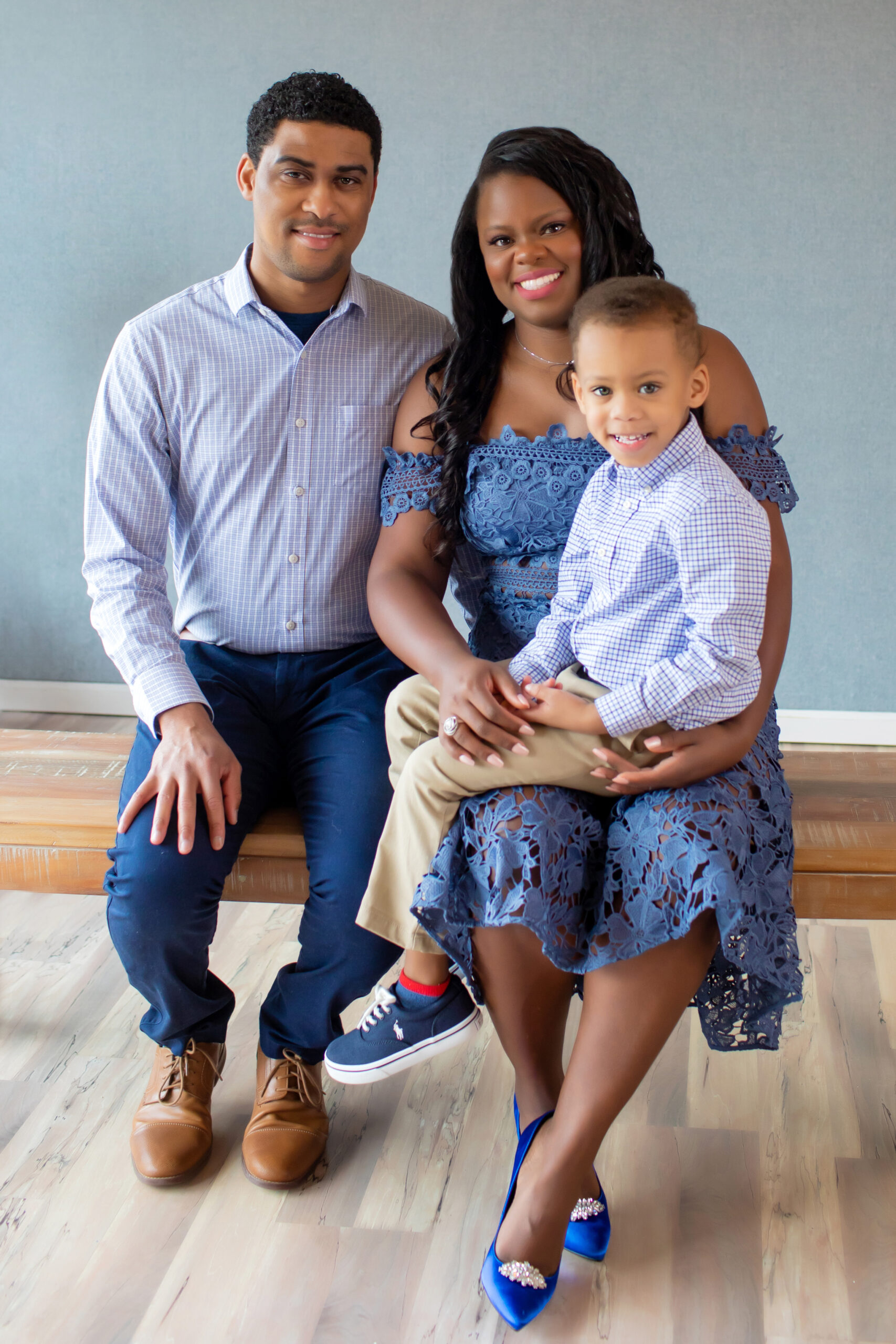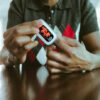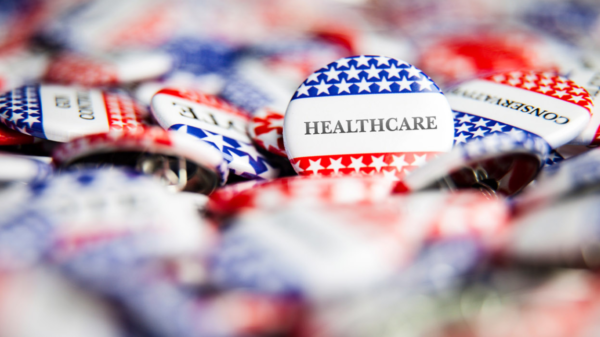
We recently reported on a stroke survivor named Leslie Jordan, who suffered a series of strokes after giving birth. In an exclusive interview, BlackDoctor.org sat down with Jordan, a volunteer for the American Heart Association’s Go Red For Women “Real Women” initiative to get an update on her recovery process, what she’s learned since the traumatic experience, how knowing her family history helped save her life, her advice for Black women experiencing cardiovascular-related pregnancy complications, and her plans for the future.
What was it like waking up weeks after your strokes not knowing what happened and having to leave your old self behind?
When I regained a little bit of consciousness, I did not fully realize the magnitude of what could have possibly happened at that time. Little by little, I struggled to search for clues to see what I could do to help myself recover enough to go home. At that time, I was still Leslie, even though I could not move (unresponsive and paralyzed) or talk in the way that was familiar to me. God kept me at peace, I honestly do not know how I could have survived if it was not for God’s grace over my life.
Knowing your family history is important. You learned about heart disease at a young age after losing several family members. How did this knowledge help you deal with your own situation?
Get ready for the cliché of the century, well not quite the century, “Knowledge is Power.” First, knowing your family history…especially your health is important. Think of it as a matter of knowing how you get to work so you can get paid, it’s just something you should just know. In my case, being aware of my own family history of cardiovascular disease essentially saved my life. Everything I did such as eating a healthy diet, doing moderate to light exercise, drinking my water, managing my stress, and mental wellness helped minimize so many other risk factors of cardiovascular disease. Even up to the point of knowing the signs and symptoms of a stroke F.A.S.T (face drooping, arm weakness, speech difficulty and time to call 911 helped save my life.
Can you walk me through the aftermath of your strokes? What did your doctors and family tell you? What type of treatment/rehabilitation did you begin taking?
After my initial spout of major strokes, life has not been a crystal staircase. Simply put, things I’ve taken for granted such as sleeping, walking, or eating continuously became challenges on top of life happening. I juggled surviving, what I could not possibly accept as my new norm and becoming a new mom all at once.
I’ve gotten mixed reviews from doctors, one told me not to worry about the details and focus on recovering, another told me in quotes “it was really, really, really, really, really, really bad.” Then some doctors left out the emotional bedside manner and went straight into the medical terminology, with which I was familiar, yet at times in my opinion, seriously lacked empathy for the magnitude of what happened. Other doctors went above and beyond to take the time to make sure I fully understood what happened in the moment even when I did not know what questions to ask them.
My husband and family helped save my life by advocating for me when I was unresponsive to make sure I got the care I needed and deserved. Essentially, I was told by my family that prayers are what brought me back and they were there to witness God’s miracle.
At that time from my recollection, once I was responsive, I underwent occupational, speech and physical therapy at the hospital. As well as treatment to dissolve the blood clot in my brain with various medications along with stabilizing my violent seizure activity. This occurred in conjunction with postpartum care to help me recover from my delivery.
Have you progressed since then both mentally and physically?
Absolutely yes! I have intentionally focused on both my mental and physical health to learn better ways to cope with pain, identify trauma, set boundaries, and most of all not normalize trauma or stress. Physically, I’ve discovered the power of movement is just as effective as a more traditional exercise routine. My God, I can walk again, so I get up every day and move even through the pain as recommended by my doctor and physical therapist. There are so many free fitness videos that you can do even sitting in a chair or on the floor. Make a choice to add extra movement every day or at least three times a week until adding more movement becomes a lifestyle. Prayer, meditation, affirmations, and a licensed therapist that can see your pain are also a must and have helped me grow so much on my journey as a stroke survivor.
In terms of balance, thinking, seizures, etc. How have you progressed?
Recovering from a stroke is not a linear recovery. There are days, weeks and months that are huge setbacks such as I can go from moderate balance to having none. My progress is inching forward as I have many setbacks that deter my ability to
complete essential daily tasks. Those setbacks are a part of my lifestyle now and I choose to pick up the pieces where they are and start again in the only way I know how, by choosing to show up and do my best every day. Recovering from strokes and continuous seizure activity makes thinking just as exhausting as exercising. Sometimes getting my energy to a sustainable place to communicate on a consistent basis takes a lot out of me. Of course, there are days when communication is a lot easier than others.
You’ve jokingly said that you and your son were raised together. Can you elaborate on that? How much did you really have to relearn?
Humor is one of my superpowers lol! I laugh through my pain sometimes to keep the tears away for a moment, then working through the pain becomes slightly easier with a positive mindset. Literally, my son and I were raised together, in the timeline of my son growing up, I learned how to grow up all over again. From learning how to eat, dress, walk, talk, and complete basic living tasks on my own with little to no assistance. I am truly grateful that I get to be my son’s mom and be present in the moment to watch him become the amazing person that he is meant to be in this world.

Pictures played a vital role in helping you recall the first three years of your son’s life. How is your memory today?
Thank God for technology! I am so glad I have pictures to help remember my son growing up. Today, I’d like to think that my memory has improved as I’ve learned valuable tools in Speech and Vestibular Therapy to help regain short and long-term memory loss. There are unfortunately setbacks that I still experience that are not in my control, nonetheless, I am still thankful to be where I am today.
You mentioned that you are working towards driving and working again. How is that process going?
Honestly, I thought I would be farther along in my progress to driving and getting back into working. I am hopeful that those things will come soon with my continued treatments and rehabilitation. In the meantime, I am finding new ways to walk in my purpose by volunteering with the American Heart Association as a spokesperson for the 2023 Class of Real Women and sharing my journey with the Amazing is Love YouTube Channel as well as serving as an active member of Alpha Kappa Alpha Sorority Incorporated. Most of my time, of course, is occupied by recovering, keeping up with my son and spending time with my loving husband, family, and friends.
Can you speak about cardiovascular disease in the Black community and among pregnant women? What is your advice to these women?
Cardiovascular disease is the number one killer of new moms. Far too many Black women are dying due to pregnancy. The fact is per Go Red for Women with the American Heart Association, Black women are over three times more likely than white women to die of cardiovascular-related pregnancy complications. The United States alone has the highest mortality rates for women dying during and after pregnancy compared to underdeveloped countries. Some of the risk factors that may lead to the alarming rates of death especially among Black women are race, age, blood pressure and weight. Fewer of these risk factors are controllable or able to be managed such as blood pressure and weight to help minimize the risk of death during or after pregnancy.
Pregnancy involves more than just carrying a baby, delivery, and post-partum. Risks that can potentially occur beyond the hormonal and physical changes, especially if not addressed, can be fatal to a new mom even after delivering the baby. Some ways that I would suggest that you can put yourself in the best possible outcome for pregnancy is to start now, do not wait until you find out that you are pregnant. Go get a complete medical exam, find out what your numbers are for blood pressure, glucose levels (sugar), BMI Body Mass Index (be sure the number is healthy for you) and cholesterol. Focus on eating and drinking a nutritious diet for your optimum health, add more movement in your everyday lifestyle. Learn about potential risk factors, as I mentioned, and how you can identify them to help save your life like I did. Lastly, the most important advice I must give is to use your voice to speak up for yourself or find someone (doula, certified midwife, family, or friend, etc.) that can help you speak up. You know your body better than anyone and you know if something is wrong. Pain is an indicator that something is wrong, reach out and get immediate help from medical professionals.
For more information on risk factors and pregnancy, visit Go Red For Women.
Do you have any goals moving forward and anything in particular that you are working toward?
Yes! A few goals of mind are:
Creating stability in my life by keeping myself, healthy and resting, a constant priority. I am still hoping to drive again and enjoy the sense of independence that I use to enjoy by traveling alone. I also, hope to write a memoir about what happened to me, all the wisdom and knowledge that I am fortunate to have gained on my journey getting to this moment now as a stroke survivor. I just really do not want to be selfish; God has blessed me with a tremendous amount of growth spiritually, mentally, physically, and emotionally. Most importantly, I am still here to share my story to help whoever needs to hear or read it.
Anything else you’d like to share?
Strokes as well as seizures for me is an invisible disability. I am grateful that I do not outwardly look like what I have been through, but my appearance does not negate the fact that I have, still, and continue to go through recovering from strokes and seizures.
I have learned to give grace to myself just as I give grace to others. I think we can all help each other do better and be better by sharing our stories and not hiding behind our trauma.
For more information on becoming an advocate to help end cardiovascular disease being the number one killer of new moms and women, click here.









You must be logged in to post a comment Login